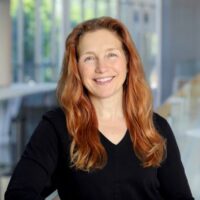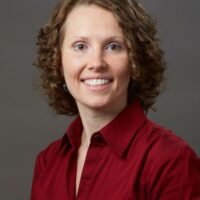View the biographies for the 2024 Advanced Course faculty.
Faculty Biographies

Mark Anderson, MD, PhD
University of California, San Francisco
Dr. Anderson is a Professor in the UCSF Diabetes Center and is a leading expert in the understanding of autoimmune diseases and their underpinnings. His major scientific contributions involve unraveling the mechanisms by which a key transcription factor called Aire promotes immune tolerance. He continues to make significant contributions in this area of research and even has developed translational approaches to his findings that involve manipulating this key tolerance mechanism. As a leader in the translation of Immunology to human health, Dr. Anderson is a co-founder of ImmunoX, a novel program to harness the immune system for human health at UCSF and he has served as President of the Federation of Clinical Immunology Societies (FOCIS). He is a practicing Diabetologist and serves in an advisory capacity for the translation of immunology to autoimmunity including service as a Deputy Director in the Immune Tolerance Network, a NIH-sponsored multi-center clinical trial consortium whose focus is on manipulating tolerance in autoimmunity, allergy, and transplantation. He has also served as chair of the Hypersensitivity, Autoimmune and Immune-mediated Disease (HAI) study section for the National Institutes of Health and was recently elected to the National Academy of Medicine. Dr. Anderson serves as Director of the UCSF Diabetes Center and as Director of the NIH/NIAD sponsored collaborative trial group called the Immune Tolerance Network (ITN).

Paul Bryce, PhD
ImmuneID
After training in the UK, Paul Bryce moved in 1999 to Harvard Medical School to research allergy and immunology at Boston Children’s Hospital. In 2005, he moved to the Feinberg School of Medicine at Northwestern University in Chicago. During this time, his group were focused on mast cell biology, encompassed both clinical and preclinical approaches to researching food allergy, eosinophilic esophagitis and other allergic diseases. In 2017, Paul moved back to the east coast to head the cluster of Type 2 Inflammation & Fibrosis in the Immunology & Inflammation Therapeutic Area at Sanofi. After four years at Sanofi, Paul is now the Executive Director, Head of Discovery for ImmuneID.

Lisa Denzin, PhD
Rutgers University
Dr. Lisa Denzin is an Associate Professor of Pediatrics at the Child Health Institute of NJ, Rutgers Robert Wood Johnson Medical School. She received a B.S. degree in Medical Microbiology from the University of Wisconsin-Madison in 1987 and a Ph.D. in Microbiology from the University of Illinois-Urbana in 1992. After 5 years of post-doctoral studies in Immunology under the tutelage of Dr. Peter Cresswell at Yale University, she was an Assistant Professor of Immunology at Duke University. In 1998 she moved her research laboratory to the Sloan-Kettering Institute, Memorial Sloan-Kettering Cancer Center in Manhattan where she was an Assistant and then an Associate Member. She also held a joint appointment at the Weill Graduate School of Medical Sciences of Cornell University in Manhattan. Dr. Denzin joined the faculty of the Robert Wood Johnson Medical School in September 2011. Her research interests include the control of immunity and autoimmunity and also in the molecular control of hematopoiesis.

Stephanie Dougan, PhD
Dana-Farber Cancer Institute
Stephanie Dougan received her PhD in Immunology from Harvard University where she studied lipid antigen presentation by CD1d and NKT cell development. She then performed a postdoctoral fellowship with Hidde Ploegh at Whitehead Institute, where she became adept in somatic cell nuclear transfer and embryo manipulations for the purpose of generating transnuclear and CRISPR genome-modified mice. Dr. Dougan joined the faculty at Harvard Medical School and Dana-Farber Cancer Institute in 2014, where her lab uses unique mouse models to study the immune response to tumors. She is particularly interested in tumors that do not induce a CD8 T cell response at baseline, and has been using pancreatic cancer as a model to develop new immunotherapies for non-T cell infiltrated tumors. Dr. Dougan is a Pew-Stewart Scholar in Cancer Research, a Bill and Melinda Gates Global Health Innovation Scholar, a Melanoma Research Alliance Young Investigator, and received a Pathway to Leadership Award from the Pancreatic Cancer Action Network and AACR. She is also dedicated to training young scientists, and received a Young Mentor Award from Harvard Medical School in 2019.

Stephanie Eisenbarth, MD, PhD
Northwestern University
Dr. Eisenbarth is the Chief of Allergy and Immunology at the Northwestern University Feinberg School of Medicine. Eisenbarth is an internationally renowned immunologist whose research focuses on how dendritic cells, B-cells and T-cells interact to induce antibody responses. She is supported by grant funding from the National Institutes of Health and numerous foundations for her work studying genetic factors in allergy and translational immunology. She is a member of the American Society of Clinical Investigation and numerous other professional associations, serves as the associate scientific advisor for the journal Science Immunology, and has published many peer-reviewed papers, editorials and review articles in journals including Science, Nature, Journal of Allergy and Clinical Immunology, Immunity, Journal of Experimental Medicine and more.

Lewis Lanier, PhD
University of California, San Francisco
Lewis L. Lanier is the J. Michael Bishop MD Distinguished Professor Emeritus in the Department of Microbiology and Immunology at the University of California San Francisco. Dr. Lanier received his Ph.D. from the University of North Carolina – Chapel Hill. After postdoctoral studies, he joined the Becton Dickinson Monoclonal Center, advancing to Associate Director. In 1990, he moved to the DNAX Research Institute, where he was Director of Immunobiology. In 1999, Dr. Lanier returned to academics as a Professor on the faculty of UCSF. His research group studies Natural Killer (NK) cells, which recognize and eliminate cells that have become transformed or infected by viruses. Dr. Lanier is an American Cancer Society Professor and in 2010 was elected to the US National Academy of Sciences, in 2011 was elected to the American Academy of Arts and Sciences, served as President of the American Association for Immunologists from 2006-2007 and received the AAI Lifetime Achievement Award in 2023.

Terri Laufer, MD
Course Director
University of Pennsylvania
Terri Laufer is a rheumatologist and immunologist at the University of Pennsylvania. Her laboratory studies the interactions between CD4+ T cells and MHC class II-positive antigen presenting cells that mediate responses to pathogens and autoimmunity.

Andrew Lichtman, MD, PhD
Brigham and Women’s Hospital
Dr. Lichtman received an A.B degree of Bowdoin College in 1974, and MD and PhD (Biophysics) degrees from the University of Rochester School of Medicine in 1981. He trained in anatomic pathology and completed a post-doctoral research fellowship at the Brigham and Women’s Hospital between 1982-1985. He is a diplomat of the American Board of Pathology, and currently holds the position of Professor of Pathology at Brigham and Women’s Hospital and Harvard Medical School. He has been the Principal Investigator of an N.I.H. -funded research laboratory for over 30 years. His current research focuses on T cell-mediated responses in cardiovascular diseases, including atherosclerosis and myocarditis. Dr. Lichtman has taught in and directed Pathology and Immunology courses at Harvard Medical School (HMS), and taught postgraduate Immunology courses worldwide. He is a coauthor of two widely used text books of immunology, and is a past chair of the Education Committee and the Publications Committee of the Federation of Clinical Immunology Societies (FOCIS). He has received numerous teaching awards at HMS, and is the recipient of the 2014 Robbins Distinguished Educator Award of the American Society of Investigative Pathology.

Carrie L. Lucas, PhD
Yale University
Dr. Carrie L. Lucas received her PhD from Harvard Medical School and her postdoctoral training from the National Institutes of Health, NIAID. Her laboratory uses cutting-edge technology and modeling to investigate cellular and biochemical defects in cells from patients with inherited immune disorders to dissect molecules and pathways critical for human immunity. A major focus of her work has been on phosphoinositide 3-kinase (PI3K) signaling and mechanisms of disease in immunodeficient patients with activating mutations in PI3K subunits.
Jonathan Maltzman, MD, PhD
Stanford University
Dr. Maltzman is Associate Professor of Medicine and Director of Basic Science Research in Nephrology at the Stanford University School of Medicine. HIs labs studies tolerance, Tregs and immune responses to latent virus in solid organ transplant

Cathryn Nagler, PhD
University of Chicago
Cathryn Nagler graduated with honors from Barnard College, Columbia University. She obtained her Ph.D. from Vilcek Institute of Biomedical Science at N.Y.U. and did a postdoctoral fellowship at M.I.T. She was Associate Professor of Pediatrics (Immunology) at Harvard Medical School prior to joining the University of Chicago in 2009. Dr. Nagler serves in national and international leadership roles, many of which are related to publication and teaching, for the American Association of Immunologists, the Society for Mucosal Immunology and Federation of Clinical Immunology Societies. She also participates in numerous review panels. Dr. Nagler received the Distinguished Faculty Award for Leadership in Program Innovation from the University of Chicago in 2017. She was listed among Crain’s Chicago Business Tech Top 50 Women in 2018 and Notable Women in HealthCare in 2019 for her work with her academic start-up company ClostraBio. Academic honors include the American Academy of Allergy, Asthma and Immunology (AAAAI) Foundation and Louis M. Mendelson Award Lectureship and the Siegel Lectureship at UCLA. She was elected as a Distinguished Fellow of the American Association of Immunologists (AAI) in 2020. She was recently named AAI Program Chair and, as such, is an ex officio member of the AAI Leadership Council.

Shiv Pillai, MD, PhD
Course Director
Ragon Institute of MGH, MIT and Harvard
Dr. Pillai completed his medical studies at the Christian Medical College, Vellore, and went on to obtain a PhD in Biochemistry from Calcutta University. He was an investigator at the Kothari Center for Gastroenterology in Calcutta until 1983, and was a postdoctoral fellow at the Whitehead Institute in Cambridge from 1984-1988. Since 1988 he has been a faculty member at the Cancer Center and the Department of Medicine at Massachusetts General Hospital and Harvard Medical School. He discovered surrogate light chains and the pre-B receptor as a post-doctoral fellow, and his laboratory at MGH also discovered the role of Btk in B cell signaling. His group has largely focused on studies on B lymphocyte development, signaling, tolerance, and more recently on the pathogenesis of human fibrotic autoimmune disorders. Dr. Pillai has been on the Editorial Boards of the Journal of Clinical Investigation and the Journal of Immunology, is the director of immunology courses taught at Harvard College and Harvard Medical School, and teaches in a number of other courses at both institutions. He has received numerous teaching and mentoring awards, including the Irving London Award and the Thomas McMahon Award, is the author of Lymphocyte Development, and is co-author with Abul Abbas and Andrew Lichtman of Cellular and Molecular Immunology and Basic Immunology.
